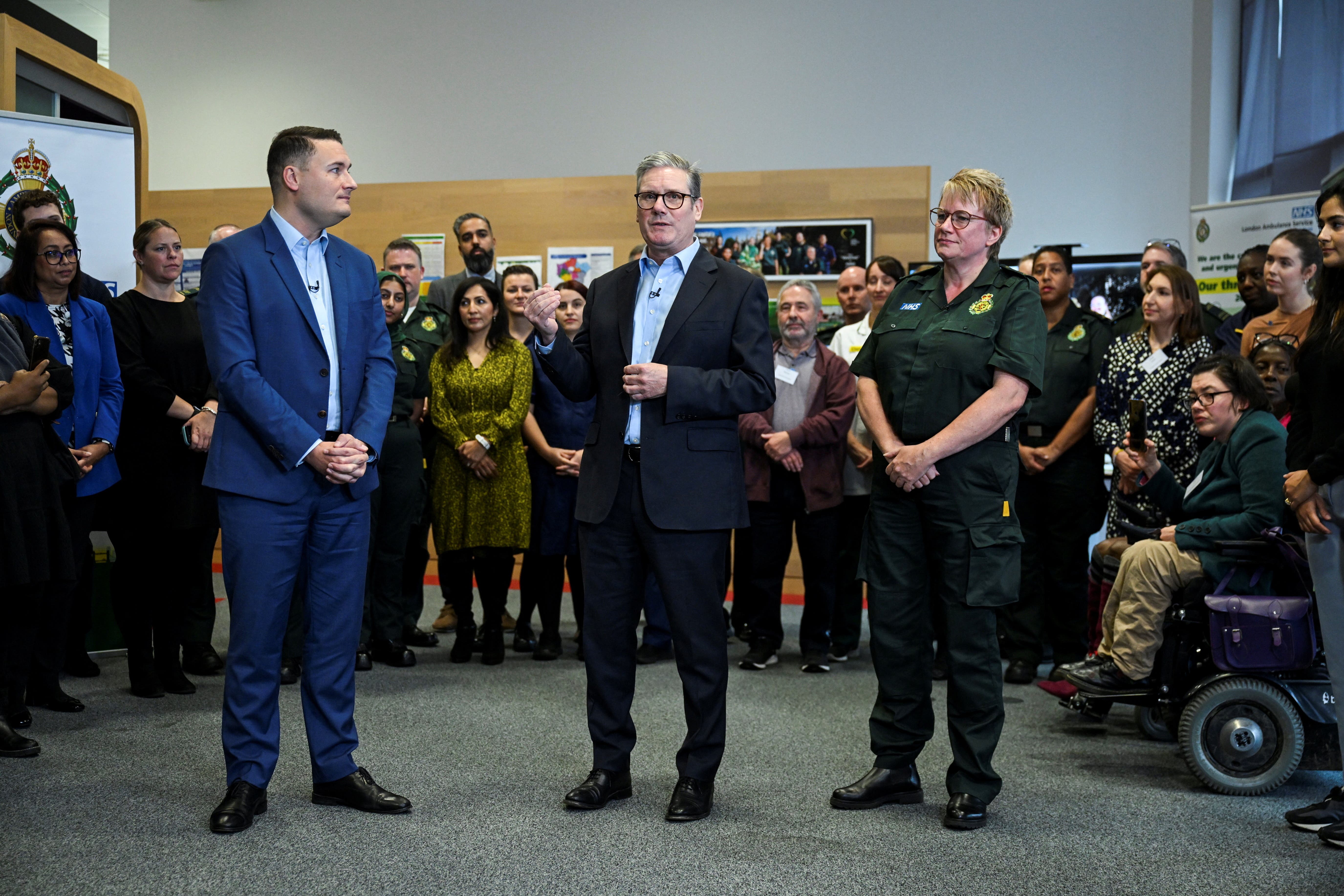Starmer insists NHS must make better use of tech amid data protection concerns
Proposed new laws will make patient records available across all NHS hospitals, GP surgeries and ambulance services in England.

The NHS must make “much more use of technology”, the Prime Minister has insisted amid concerns about plans to share patient data in the NHS.
New laws are set to be introduced to make patient records available across all NHS hospitals, GP surgeries and ambulance services in England.
And plans for a “single patient record” have been unveiled, which will summarise all of a patient’s health information, test results and letters in the NHS App, the Department of Health and Social Care said.
But concerns have been raised about privacy and data protection.
Ministers have launched a consultation on the future of the NHS, promising to put patients and staff at the heart of its forthcoming 10-year health plan.
The plan, expected to be published in 2025, will see greater use of data and technology.
Speaking at an event launching the consultation in east London, Sir Keir Starmer said: “We need to go from analogue to digital, we need to use much better technology, whether that is in the ambulance service, in our hospitals, in our neighbourhoods, making much more use of technology.”
Health Secretary Wes Streeting said that the “analogue NHS” needs to shift to become a system which is “not just benefiting from but driving the revolution in data, life sciences and med tech”.
Earlier on Monday, care minister Stephen Kinnock told LBC radio that plans for digital patient records will “really streamline the system”.
Asked about security guarantees, he said: “We’re bringing forward primary legislation, which will give you that cast-iron guarantee that all of the security protocols will be in place.”
Mr Kinnock told BBC Radio 4’s Today programme: “If you constantly just say, we can’t do this because of data protection concerns, you’re just going to have the status quo going on and on and on.”
He described the Government’s plans as “no different to online banking apps” and “definitely more NatWest than it is Star Trek”.
“In the end, if we don’t modernise the NHS, make it more efficient and productive, you can have the best data protection rules in the world, but you’re not going to have a health and care system that actually works,” he said.
A spokesperson for patient privacy campaign group medConfidential said: “Patients should know how data about them is accessed and used, and their choices to opt out of such uses should be respected not removed.
“Government may end up sacrificing NHS patients on the altar of economic growth.”
NHS England’s national medical director Professor Sir Stephen Powis told Times Radio: “Data safety is a top priority for the NHS, for the reasons of privacy, but also for reasons of cybersecurity.
“But it really is important that we ensure that patients have control of their own health data.
“It’s your health, it’s your data, and I think it empowers individuals to know more about their health and to live healthier lives.”
Meanwhile, Mr Streeting urged NHS staff and patients to take part in the “national conversation” by sharing their views online via change.NHS.uk until the start of next year.
“There couldn’t be a more important time for us to have this conversation,” he said.
“The NHS is going through what is objectively the worst crisis in its history, whether it’s people struggling to get access to their GP, dialling 999 and an ambulance not arriving in time, turning up to A&E departments and waiting far too long, sometimes on trolleys in corridors, or going through the ordeal of knowing that you’re waiting for a diagnosis that could be the difference between life and death.
“Worse still, receiving a prognosis that amounts to a death sentence that could have been avoided because the NHS didn’t reach you in time.
“That is, I’m afraid, the daily reality in the NHS today.”
He added: “We feel really strongly that the best ideas aren’t going to come from politicians in Whitehall.
“They’re going to come from staff working right across the country and, crucially, patients, because our experiences as patients are also really important to understanding what the future of the NHS needs to be and what it could be with the right ideas.”
The Cabinet minister added: “This moment is as important as the 1948 moment when that Labour government created the NHS, built the NHS for the 20th century.
“It’s now up to this Labour Government to rebuild our NHS for the 21st century, and with your help that’s exactly what we’re going to do.”
Sir Keir added: “I know the last 14 years have been really, really hard. We have had austerity, we haven’t had the right money and resources.
“We have had a reorganisation of the NHS that made no sense and made things worse, then had the burden of Covid and everything that followed after that. Frankly, you deserve a lot better than that.”
Addressing suggestions that his Government should have taken swift action rather than a consultation, Sir Keir said: “We want to hear from you and from as wide a number of people as possible, both in the NHS and people who are using the NHS, because this needs to be the once-in-a-generation opportunity for you to put your fingerprints on the future – literally to craft the service that you are working for.
“This is a really important conversation to create that NHS of the future, a moment in our history.”
Bookmark popover
Removed from bookmarks